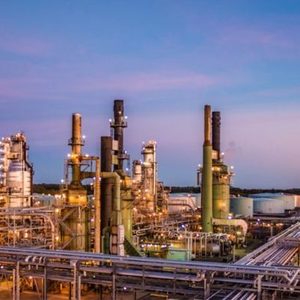BP to double renewable diesel capacity at Northwest refinery

PHOTO: BP
October 7, 2021
BY BP
BP has announced plans for a $269 million investment in three projects at its Cherry Point Refinery in Washington state, aimed at improving the refinery’s efficiency, reducing its carbon dioxide (CO2) emissions and increasing its renewable diesel production capability.
These projects are expected to create more than 300 local jobs over the next three years. This includes more than 200 construction jobs, 25 engineering jobs and approximately 40 support roles. BP currently supports more than 36,600 jobs in Washington.
The investment is aligned with BP’s aims to be net zero across its operations by 2050 or sooner and to reduce the carbon intensity of the products it sells by 50% by 2050 or sooner.
Advertisement
Advertisement
David Lawler, chairman and president, BP America, said, “BP’s new investment in Cherry Point builds on a half century of innovation in Washington state. It will position us to provide lower carbon energy while creating jobs and reducing emissions in our operations.”
In addition to extensive work on its hydrocracker unit (a $169 million project) and a major cooling water infrastructure upgrade ($55 million), BP is making a $45 million investment in the expansion of the refinery’s renewable diesel production capacity. The Renewable Diesel Optimization (RDO) project will more than double the refinery’s renewable diesel production capability to an estimated 2.6 million barrels a year.
Renewable diesel is manufactured from biomass-based feedstocks, such as vegetable oils and rendered animal fats. The increased production capability from the RDO project is expected to reduce the CO2 emissions resulting from the diesel produced by Cherry Point by approximately 400,000 - 600,000 tons per year.
Advertisement
Advertisement
In 2018, Cherry Point became the first and only refinery in the Pacific Northwest capable of processing these feedstocks alongside conventional feedstocks like crude oils. This fuel produced through co-processing is chemically identical to petroleum diesel and can be distributed using the same systems.
Amber Russell, senior vice president, refining, terminals and pipelines, said: “Our team’s success since we first began producing renewable diesel made these projects possible. We’re excited that Cherry Point continues taking steps toward a lower carbon future. This work shows the important role refining can play in helping both bp and the world reach net zero.”
The additional renewable diesel production is expected to be available in 2022.
Related Stories
CoBank’s latest quarterly research report, released July 10, highlights current uncertainty around the implementation of three biofuel policies, RFS RVOs, small refinery exemptions (SREs) and the 45Z clean fuels production tax credit.
The USDA significantly increased its estimate for 2025-’26 soybean oil use in biofuel production in its latest World Agricultural Supply and Demand Estimates report, released July 11. The outlook for soybean production was revised down.
The U.S. Energy Information Administration maintained its forecast for 2025 and 2026 biodiesel, renewable diesel and sustainable aviation fuel (SAF) production in its latest Short-Term Energy Outlook, released July 8.
XCF Global Inc. on July 10 shared its strategic plan to invest close to $1 billion in developing a network of SAF production facilities, expanding its U.S. footprint, and advancing its international growth strategy.
U.S. fuel ethanol capacity fell slightly in April, while biodiesel and renewable diesel capacity held steady, according to data released by the U.S. EIA on June 30. Feedstock consumption was down when compared to the previous month.
Upcoming Events










